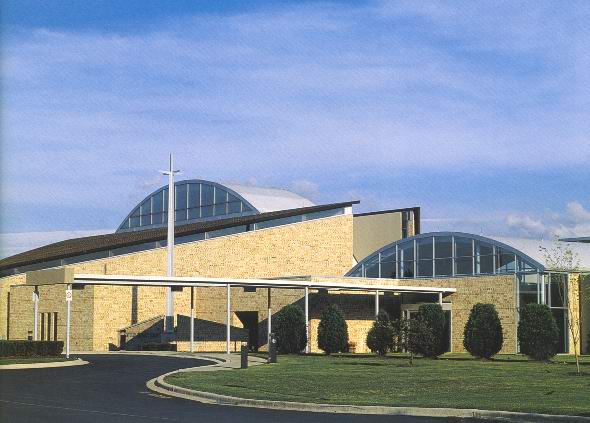The Bells
In some Catholic parishes bells or chimes are
sounded as the priest raises the Host, the now consecrated Body of Christ and
then the Challis of the now consecrated Blood of Christ. In some parishes the
bells or chimes are not used. Why this inconsistency in a church that thrives in
consistency?
To answer that question we must first understand
why we had the bells in the first place. Going far back, the Catholic
(Christian) mass started as a small group gathering in the homes of the
faithful. No bells. With the acceptance of Christianity by the Roman Emperors
and the construction of churches the mass became formalized but the bells did
not appear until the mass became the almost private practice of the clergy. The
commoner was considered unworthy and indeed came to see himself as unworthy and
churches included a rood screen between the sanctuary and the nave. This
extended from the 13th into the 15th century. The bottom part of the screen was
solid and the laity could not even see the priest. However, as the Host
and Chalice were raised at the consecration, bells came to be rung to alert the
faithful to the fact that they could see them. During the Protestant Reformation
the screens were torn out of the churches. The bells remained in the Catholic
Churches.
The sounding of the bells alerted the faithful to
the consecration of the Body and Blood. It is a solemn and indeed miraculous
moment to be reverenced by all present. It is something very special and
deserves special notice.
However, one of the concerns of the Second
Vatican Council was that the Catholic Church had not been giving The Word of God
sufficient emphasis at the Mass. This had been recognized by our Protestant
brothers at the time of the Reformation and it took us several hundred years to
catch up. (It is sometimes difficult to admit you are wrong.) The telling of the
stories of Christ was of equal prominence with the Eucharist at the early
Christian gatherings and should be restored. It was also decided that the mass
should be celebrated in the local language rather than in Latin to allow and
encourage full participation by the laity. All very well and good.
There were theologians who felt that the use of
the bells signified that the Consecration of the mass was more important than
the rest. Indeed, there were many Catholics who contended that their obligation
to hear mass was fulfilled if you were there for the Consecration and until
after Communion is distributed. (We have many who think nothing of arriving late
and leaving after communion to this day.) The term "to hear mass" is a symptom
of the problem ... just be there for the important part. It didn't matter that
you didn't understand much less participate. Just giving some time to God was
all that was required. The theologians felt that the use of the bells sends the
message that the rest of the liturgy is unimportant. Since their original
need is now gone, they recommended their removal. The problem is that when you
mess with tradition it sometimes takes several generations to convince everyone
that what you are doing is right.
The important thing of which we must be aware is
that there no part of the mass which is more or less important than any other.
Every word, hymn, gesture or action is included for a reason. Even the
ringing of a bell has it's symbolic meaning. To some it has more meaning than to
others but even it's omission has meaning. There are prayers and actions that
can be omitted or modified at the discursion of the presider but the context of
that modification or omission is important.
I like the logic of not sounding the bells but is
it worth messing with Tradition? Probably yes, in the long run, but we live
today. Its a dilemma.
Grandpa Don Plefka
02/11/2008
|
My Church
This is not so much about St. Julie Billiart parish,
but about the NEW Catholic Church. It may not seem new to my children and
definitely not new to my grandchildren but it is no longer the same church that I
grew up in and did not understand during that time. It is new and dedicated to
Jesus as a result of the Vatican II council of bishops.
|


|
The Bells
|
The
World of Grandpa Don
www.plefka.net |
|
| To
recommend an item on this page to a friend, copy the URL from your
browser address line and email it with a personal note. |

